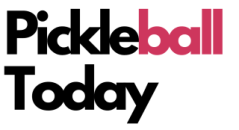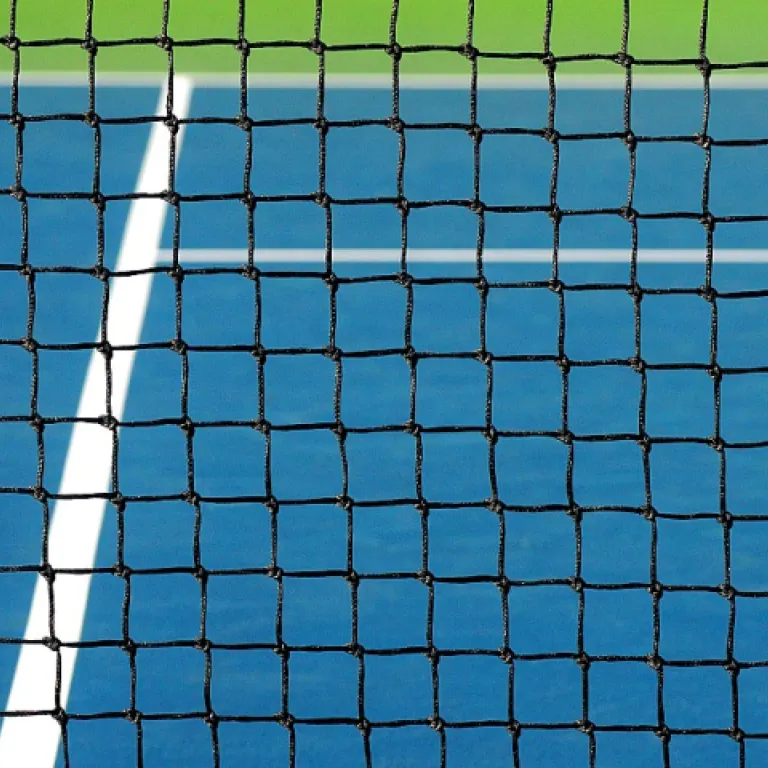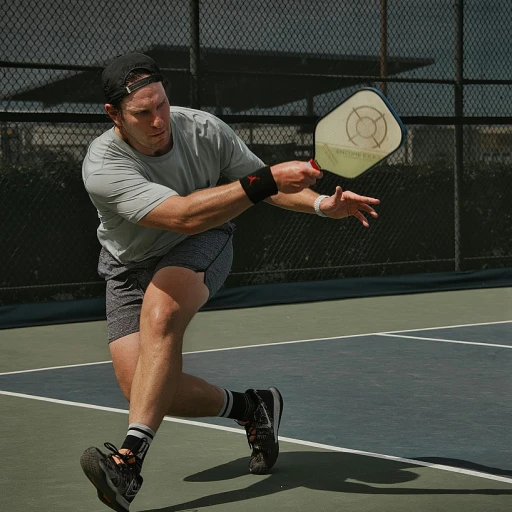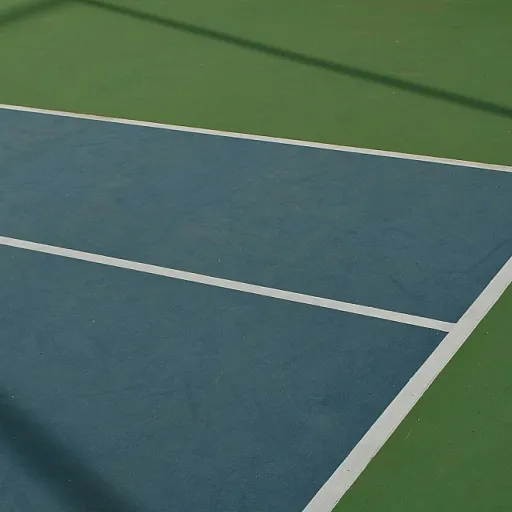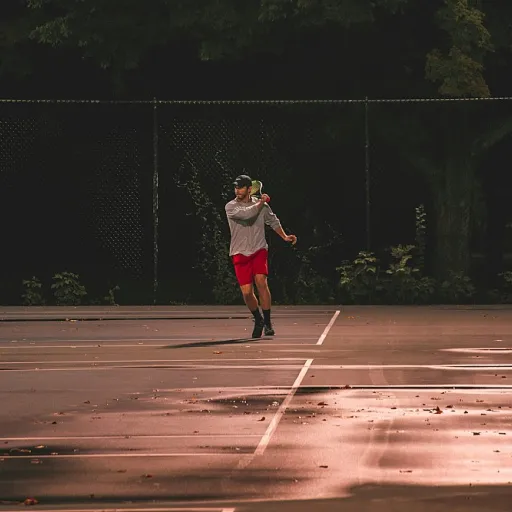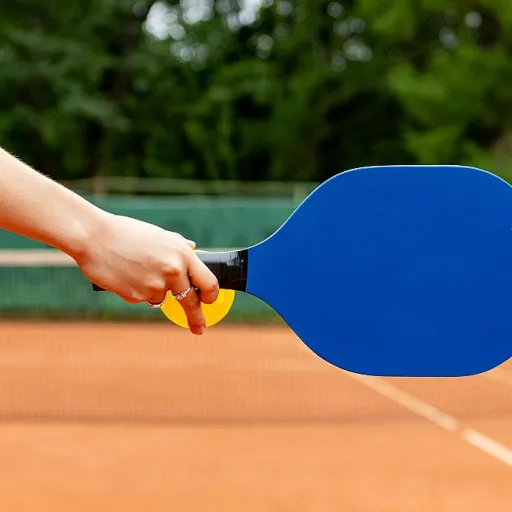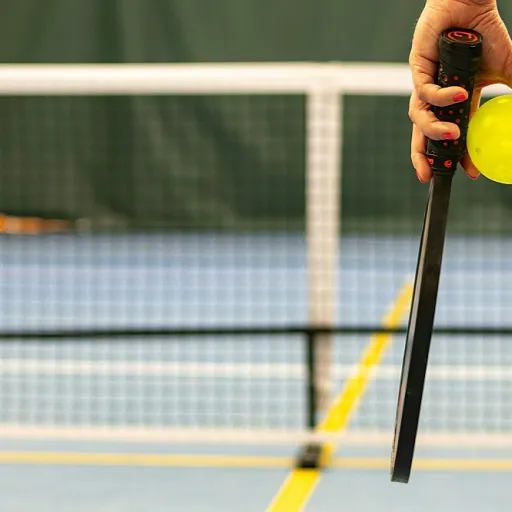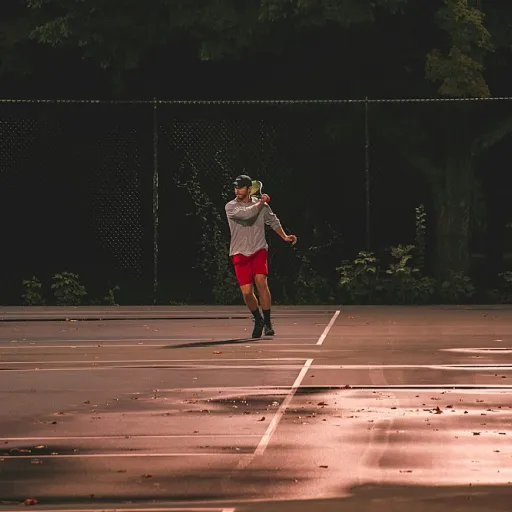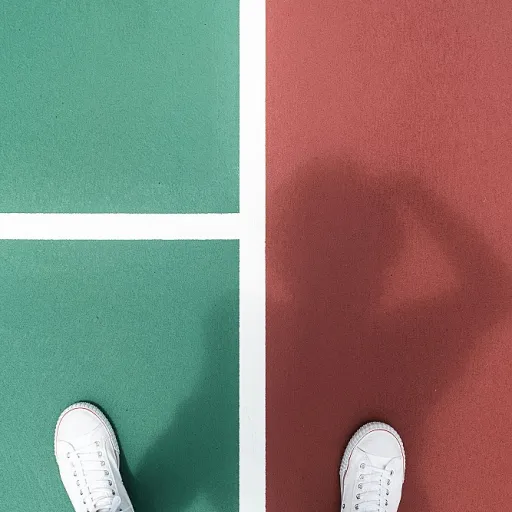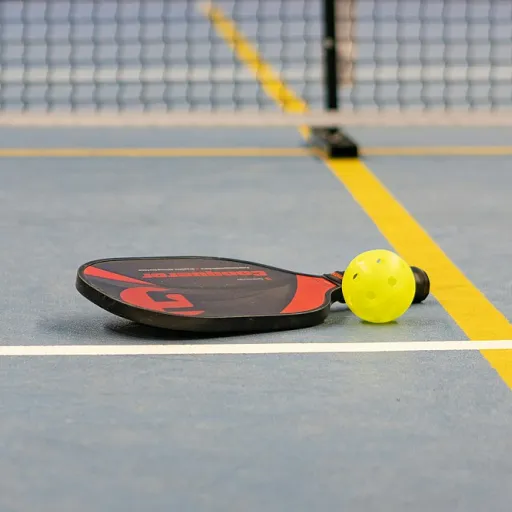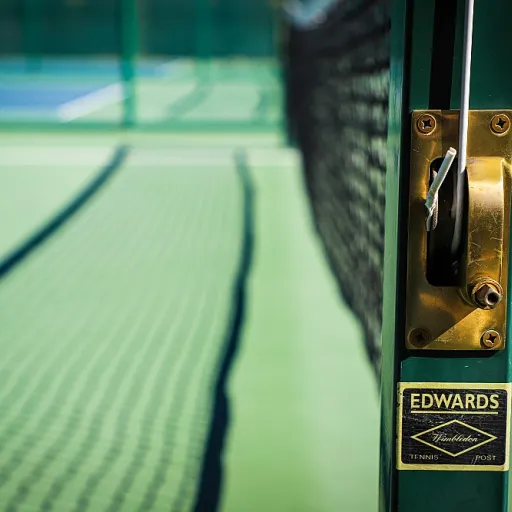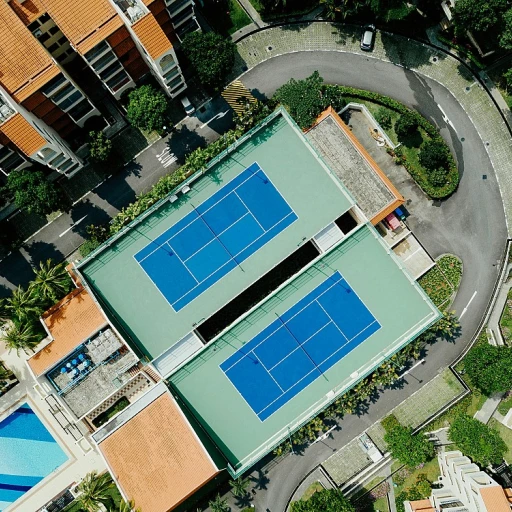
Understanding the basics before your first pickle ball lesson
Getting Familiar with Pickleball Before Your Lesson
Before you step onto a pickleball court for your first lesson, it helps to have a basic understanding of the sport. Pickleball is a fast-growing game that combines elements of tennis, badminton, and ping-pong. It’s played on a smaller court than tennis, making it accessible for all ages and skill levels. Whether you’re joining lessons at your local park or a dedicated pickleball facility, knowing the basics will help you get the most out of your coaching sessions.
- Pickleball courts: These are typically found in parks, community centers, or private clubs. Some tennis courts are even adapted for pickleball play.
- Equipment: You’ll need a paddle, a pickleball (similar to a wiffle ball), and comfortable athletic shoes. Most lessons provide equipment, but check with your coach or facility in advance.
- Game basics: The game is played either as singles or doubles. The goal is to score points by serving and rallying, with unique rules like the non-volley zone ("kitchen") that make the sport distinct.
Understanding these fundamentals will help you feel more confident and ready to learn new skills during your pickleball lessons. If you’re curious about how pickleball is played around the clock or want to see how open play works, check out this guide to 24-hour pickleball for a deeper look at the sport’s vibrant community.
As you prepare for your first lesson, consider your availability and the hours you can dedicate each week to practice. This will help you set realistic goals and make the most of your time with a certified pickleball coach. Remember, every player starts as a beginner, and the right mindset will help you elevate your game from the very first session.
What to expect during a pickle ball lesson
What Happens During Your First Pickleball Lesson?
When you arrive at the pickleball court for your lesson, expect a welcoming environment. Lessons are often held at local parks or dedicated pickleball courts, sometimes even at park tennis facilities that have been adapted for this fast-growing sport. Most coaches start by assessing your current skill level, regardless of whether you have a background in tennis or are completely new to racket sports.
Structure of a Typical Lesson
- Warm-up: Your coach will guide you through a brief warm-up to get your body ready for play. This helps prevent injuries and gets you comfortable on the court.
- Skill Introduction: The coach introduces basic skills, such as grip, stance, and paddle control. For beginners, this is a great way to build confidence before moving into more advanced techniques.
- Drills and Practice: Expect to spend a good portion of your lesson on drills designed to help you learn and reinforce key skills. These drills are tailored to your player skill level and may include serving, volleying, and point play scenarios.
- Game Play: Many lessons end with some form of open play or point play, allowing you to apply what you’ve learned in a real game setting. This is also a chance to interact with other players and experience the social side of the sport.
- Feedback: Your coach will provide feedback throughout the lesson, helping players identify areas for improvement and offering tips to elevate your game.
What Makes a Great Pickleball Lesson?
Certified pickleball coaches focus on helping players of all skill levels improve their game. A great lesson is structured, supportive, and tailored to your goals. Whether you’re taking private pickleball lessons or joining a group session, the coach’s teaching style and availability can make a big difference. Some coaches offer flexible hours or week-to-week scheduling to fit your needs.
During your lesson, you’ll notice the coach’s attention to detail—correcting your form, encouraging you to try new strategies, and making sure you understand the rules of the game. This hands-on coaching approach is key to building a strong foundation in pickleball.
Embracing the Challenge
Pickleball is a sport that welcomes all ages and skill levels. If you’re interested in pushing your limits and exploring new ways to play pickleball, check out this article on embracing the challenge of 24-hour pickleball. It’s a great example of how the sport can be both fun and challenging, no matter where you are in your journey.
Key skills to focus on in your lesson
Essential Techniques Every Beginner Should Master
When you start taking pickleball lessons, it’s important to focus on the core skills that will help you enjoy the sport and improve your game. Whether you’re playing at your local park, on a dedicated pickleball court, or joining open play sessions, these foundational techniques are key for all players, regardless of skill level.
- Grip and Stance: Learning the right grip is crucial. Most coaches will teach you the continental grip, which is versatile for both forehand and backhand shots. Your stance should be balanced, with knees slightly bent and feet shoulder-width apart, ready to move quickly on the court.
- Serving: The serve starts every point in pickleball. Certified pickleball instructors often emphasize a consistent underhand serve, aiming for accuracy over power. Practicing your serve during lessons and between sessions will help you build confidence.
- Return of Serve: Returning the serve effectively sets up your next shot. Focus on keeping the ball deep and low, making it harder for your opponent to attack. Many lessons include drills to improve this skill.
- Dinking: Dinking is a soft shot played near the net, a unique aspect of the pickleball game. It requires control and patience. Coaches often use point play scenarios to help players develop touch and strategy in the kitchen area.
- Volleys and Groundstrokes: You’ll learn to volley (hit the ball before it bounces) and hit groundstrokes (after the bounce). Both are essential for rallies and winning points, especially as you progress to higher skill levels.
- Movement and Positioning: Good footwork and court awareness are vital. Lessons will cover how to move efficiently, position yourself for shots, and work with a partner in doubles play.
As you continue your lessons pickleball, your coach will tailor drills to your player skill level, helping you elevate your game week after week. Practicing these skills outside of lessons, during open play or at your local park tennis facility, will reinforce what you learn and make you a more confident player.
For those interested in exploring different environments, such as indoor courts or leagues, check out this guide to indoor pickleball courts and leagues for more insights on how the setting can influence your learning and playing experience.
Common challenges beginners face and how to overcome them
Overcoming Early Hurdles on the Pickleball Court
Starting out in pickleball is exciting, but it’s normal for new players to face a few bumps along the way. Recognizing these common challenges can help you stay motivated and make the most of your lessons. Here’s what many beginners experience and how you can move past these obstacles to elevate your game:
- Mastering the Basics: Many players find the rules and scoring system of pickleball a bit confusing at first, especially if they have a background in tennis or other racquet sports. Don’t worry—your coach will break down the essentials and help you learn at your own pace. Repetition during lessons and open play at your local park will reinforce these basics.
- Developing Consistency: It’s common to struggle with keeping the ball in play or hitting consistent shots. This is where point play and drills during lessons become valuable. Focus on technique and don’t be discouraged by early mistakes. Over time, your skills will improve with regular practice.
- Adjusting to Court Positioning: Understanding where to stand and how to move on the pickleball court can be tricky for new players. Certified pickleball coaches are great at teaching court awareness and helping players of all skill levels find the right positions during games.
- Managing Nerves and Confidence: Many beginners feel self-conscious during their first few lessons, especially in group settings or when playing with more experienced players. Remember, everyone starts somewhere. Private pickleball lessons can offer more personalized coaching if you prefer a quieter environment.
- Finding the Right Level of Challenge: Sometimes, players join lessons that don’t match their current skill level. Be honest with your coach about your experience and goals. This helps ensure you’re grouped with players who will help you improve game by game.
With patience, the right coaching, and regular practice—whether at a park tennis facility or dedicated pickleball courts—you’ll see progress each week. The key is to keep showing up, ask questions, and enjoy the process of learning this fast-growing sport.
How to practice effectively between lessons
Making the Most of Your Practice Time
After your pickleball lessons, it’s important to reinforce what you’ve learned. Consistent practice between sessions helps players of all skill levels elevate their game and retain new skills. Whether you play pickleball at a local park, on dedicated pickleball courts, or at a park tennis facility, setting aside regular hours each week for practice is key.
- Drill with Purpose: Focus on the specific skills your coach introduced during your last lesson. For example, if you worked on point play or improving your serve, dedicate time to repeat those drills until you feel more comfortable.
- Open Play Sessions: Join open play at your local pickleball court. Playing with different players exposes you to various playing styles and helps you adapt your game. This is also a great way to meet other players and learn from their experiences.
- Set Goals: Before each practice, identify one or two skills you want to improve. This could be anything from footwork to shot placement. Tracking your progress will keep you motivated and focused.
- Mix Up Your Partners: Playing with players of different skill levels challenges you in new ways. It’s also a great opportunity to observe how others approach the game and pick up new strategies.
- Use Available Resources: Many parks and clubs offer group sessions, clinics, or even private pickleball coaching. If you have availability, consider supplementing your lessons with these options for extra teaching and feedback.
Tips for Effective Self-Improvement
Improving your pickleball game isn’t just about time on the court. Watching certified pickleball pros, reviewing lesson notes, and even recording your play can help you identify areas for growth. If you’re serious about advancing, ask your coach for personalized drills or feedback between lessons. This approach is especially helpful for players who want to progress to the next skill level or prepare for competitive play.
Remember, the sport is about having fun and enjoying the process. With regular practice and the right coaching, you’ll see steady improvement in your pickleball skills week after week.
Choosing the right instructor for your pickle ball lesson
Finding a Coach Who Matches Your Goals
Choosing the right instructor can make a huge difference in how quickly you improve your pickleball game. Whether you’re looking for private pickleball lessons or group sessions at your local park, it’s important to find a coach who understands your skill level and learning style. Some players prefer a certified pickleball coach with experience in both tennis and pickleball, while others look for someone who is great at helping players of all skill levels feel comfortable on the court.
What to Look For in a Pickleball Instructor
- Certification and Experience: Look for coaches with a background in teaching pickleball or related sports like tennis. Certified pickleball instructors often have a deeper understanding of the game and proven coaching methods.
- Communication Skills: A great coach will explain techniques clearly and adapt their teaching to your needs. They should be approachable and open to questions during lessons.
- Availability and Flexibility: Consider the coach’s schedule and whether they offer lessons at times that fit your week. Some coaches have set hours at park tennis or pickleball courts, while others may offer more flexible options.
- Focus on Skill Development: The best instructors help you work on key skills, from point play to court positioning, and tailor drills to your goals. They should encourage you to play pickleball at your own pace while challenging you to elevate your game.
- Reputation Among Players: Ask other players at your local park or pickleball york community about their experiences. Word of mouth can be a reliable way to find a coach who is committed to helping players improve game and enjoy the sport.
Maximizing Your Lessons
Once you’ve found the right instructor, make the most of your pickleball lessons by arriving prepared and open to feedback. A good coach will help you identify areas to work on between sessions, whether it’s practicing at open play or focusing on specific skills during the week. Remember, the right coach is not just about credentials—they should inspire you to learn, grow, and enjoy every moment on the pickleball court.
